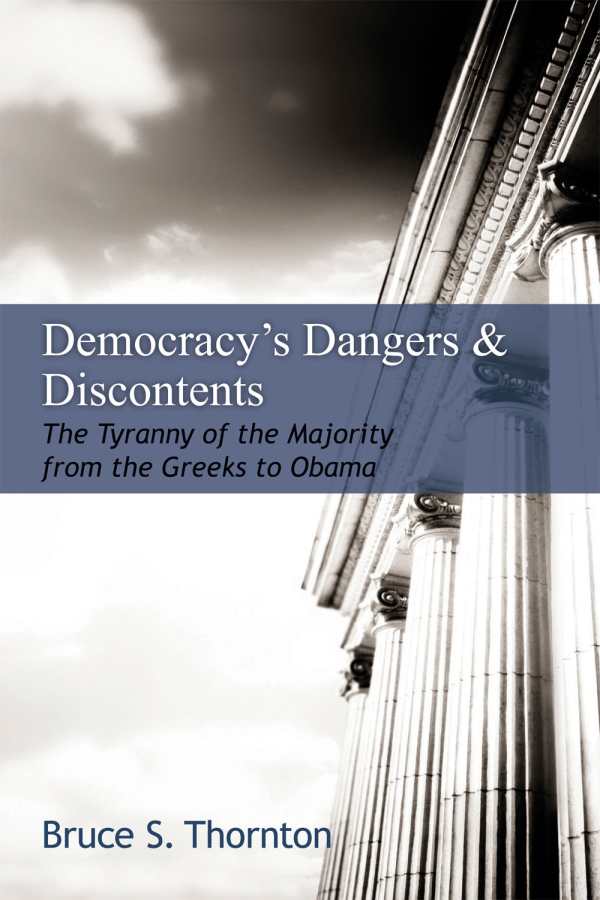Democracy's Dangers and Discontents
The Tyranny of the Majority from the Greeks to Obama
Thornton delivers his authoritative research in a manner that can be understood by readers not schooled in classical history or philosophy.
Democracy’s Dangers and Discontents: The Tyranny of the Majority from the Greeks to Obama, by Bruce S. Thornton, is not a huge book—just less than 200 pages—but it manages to be weighty.
Thornton is a classics professor at California State University in Fresno, has a bachelor’s degree in Latin and a PhD in comparative literature, and is a research fellow at the Hoover Institute at Stanford University. He has written extensively on classical culture and its relation to contemporary politics.
In this book, Thornton breezes through an examination of how the excesses of democracy in the city-states of Greece and the inherent flaws in human nature worked together to bring about the downfall of these ancient cultures. He further argues that self-rule in the United States is tending toward the same end but that a more positive fate for the country can be secured by a return to the antidemocratic tendencies that were present in the writings of the founders of this country.
These are not new issues. Historians have flogged these matters since they began chronicling the development of our republican form of government from the constitutional convention to the election of 1800 and down through the writings of Lincoln and the policies of Franklin Roosevelt. What is refreshing and valuable about Thornton’s book is that it is succinct and understandable. It delivers the underlying research and authoritative references in a manner that can be followed and understood by readers not schooled in classical history or philosophy. Thornton’s arguments are clear and approachable. Discussing freedom and equality, two primary objectives of a democratic society, he says: “Finally, genuine freedom and equality are both eroded when one looks to the government to define one’s happiness, and then to take responsibility for providing it.”
The book’s arguments are less cogent when it comes to contemporary political phenomena, such as the Tea Party movement. Here, the writer seems to characterize the Tea Party strictly as a citizens’ grassroots movement meant to push back against the intrusions of the federal government. He appears to ignore the countervailing evidence that indicates the Tea Party was, in fact, partially the result of manipulation by large corporate interests financed by nationwide conservative PACs.
Democracy’s Dangers and Discontents should be well received by conservatives and should be read with interest by liberals.
Reviewed by
John Senger
Disclosure: This article is not an endorsement, but a review. The publisher of this book provided free copies of the book to have their book reviewed by a professional reviewer. No fee was paid by the publisher for this review. Foreword Reviews only recommends books that we love. Foreword Magazine, Inc. is disclosing this in accordance with the Federal Trade Commission’s 16 CFR, Part 255.

